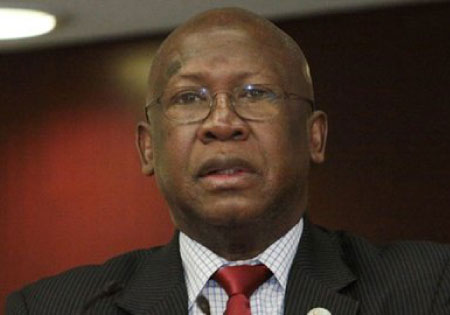
Good governance on the continent is, overall, steadily on the rise.
For all who live in Africa or care about its future, these are remarkable and exciting times. The story of the continent is being rewritten.
Africa is no longer seen across the world as simply an exotic haven for wildlife enthusiasts, get-rich-quick merchants or marauding arms dealers looking for the next trouble spot.
It is fast becoming a destination of choice for those looking to make long-term investments or set up businesses, with returns that have proven to be higher than in most other parts of the world.
The continent’s natural wealth is a major attraction, but so too is its rapidly growing consumer market.
As many regions continue to struggle to escape the fallout from the global financial crisis, Africa’s growth is strong and the continent is widely viewed as the new economic frontier, the last great expanse that still holds the potential for massive industrialisation and rapid development.
The sixth Ibrahim Index of African Governance (IIAG), published this week, takes a wide-ranging look at the governance of countries across the continent.
It allows us to say that overall governance in Africa has improved since 2000.
A number of countries – including Angola, Liberia, Rwanda, Sierra Leone and Zambia – have made significant improvements over this period.
But there is a shadow over this optimism.
The index underlines how Africa’s overall progress in the sphere of economic governance is not being matched by similar improvements in the political and human rights sphere.
Indeed, it confirms how advances in governance over the last six years in the area of sustainable economic opportunity and human development, which have often been impressive, have been offset by a deterioration in the areas of participation, human rights, safety and rule of law.
Worryingly, some of Africa’s regional powerhouses (Egypt, Kenya, Nigeria and South Africa), which are so important for the continent’s progress, all conform to this trend.
This growing imbalance needs to be addressed.
It is not just that people have the right and ambition to live under the rule of law or have a say over their future through the political process.
There is also the real likelihood that the imbalance will dampen economic achievements and prevent citizens sharing fairly in the continent’s growing wealth.
Without meaningful participation and independent courts, for example, countries will find it difficult to attract the investment they need to continue creating jobs or to enjoy the stability necessary for sustained economic growth.
We need to improve governance across the board if Africa is to make the most of its rich potential.
It was to help deliver this ambition that the index was first published in 2007.
Every country, with the exception of Sudan and South Sudan, for which there currently exists insufficient data, is assessed, robustly and independently, each year, against a whole range of data to highlight improvements or deterioration in governance.
The index is not concerned with ideology or statements of goodwill, and focuses on outcomes on the ground rather than inputs and commitments.
Data is examined to see whether, for example, economic opportunities for each country’s citizens are improving, whether more children are progressing to secondary education, or whether access to electricity has improved.
The index also examines less concrete achievements such as whether it is safer to walk in the streets or whether citizens can
rely on the independence of their courts.
It enables the performance of countries to be judged against the passage of time and the performance of their neighbours.
Looking across borders, this year’s index brings to light some important differences in regional performance.
While west, central and southern Africa are improving their overall governance scores, both north Africa and east Africa have registered declines.
East Africa has been overtaken by west Africa in terms of sustainable economic opportunity, driven down by the poorer performances of Kenya and Uganda.
In all regions, the highest subcategory score was achieved in gender, with the notable exception being west Africa, which received its lowest subcategory score in the “gender” category.
This is highly significant as no region or country can afford to ignore the potential of half its population in this way.
Within west Africa, too, Nigeria is a cause for concern.
It now finds itself judged to be among the 10 worst overall-performing countries of the 52 assessed for the index.
As all Africa’s regional powers play a key role in shaping the continent’s economic and political landscape, this failure could have significantly broader implications.
The aim of the index, of course, is neither to establish a league table nor to name or shame countries.
It was devised to be used by governments and citizens as a tool for policy-making and accountability.
It helps to shine a light on what’s working and what’s not, to identify where the greatest efforts need to be made and to help share best practice.
But this also requires governments to improve the collection of accurate and relevant data about what is happening within their borders.
There continues to be a serious data deficit across the continent, which is an obstacle to effective government.
Despite the mixed picture revealed by the latest index, there are grounds for cautious optimism about the future.
Africa is too rich in natural and human resources to stay poor. Africans themselves are increasingly upbeat and confident about their future.
What is needed is continued commitment to good governance to ensure that these resources are harnessed to achieve the results that any citizen living in the 21st century has a right to expect.
It is the key to Africa’s future.




